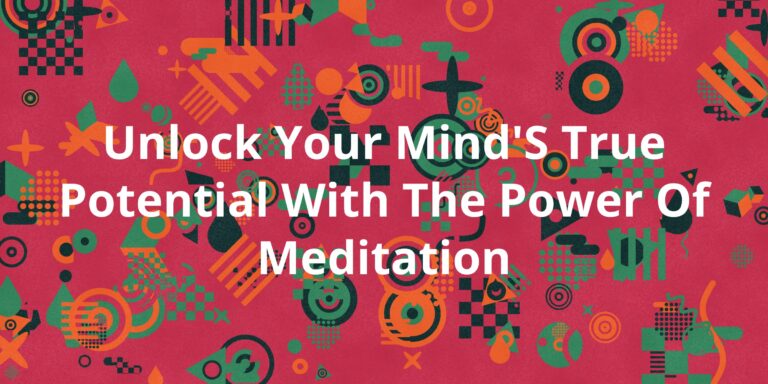Mindfulness is a term that has gained popularity in recent years, but what exactly does it mean? Simply put, mindfulness is the practice of being fully present and aware of your thoughts, feelings, and surroundings. It involves paying attention to the present moment without judgment or distraction, allowing you to experience life more deeply and meaningfully.
One of the most powerful ways to cultivate mindfulness is through meditation. Meditation has been practiced for thousands of years and has been shown to have numerous benefits for both physical and mental health. In this article, we will explore the secrets of mindfulness and discover the power of meditation.
The Benefits of Meditation
Meditation has been shown to have a wide range of benefits, including:
1. Reduced stress and anxiety: Studies have found that regular meditation can help reduce levels of cortisol, a hormone associated with stress and anxiety.
2. Improved focus and concentration: Practicing meditation can help improve your ability to concentrate and stay focused on tasks.
3. Enhanced self-awareness: Meditation can help you develop a deeper understanding of yourself and your thoughts and emotions.
4. Increased empathy and compassion: Regular meditation has been shown to increase feelings of empathy and compassion towards others.
5. Improved sleep: Meditation can help regulate the body’s natural sleep-wake cycle, making it easier to fall asleep and stay asleep.
How to Practice Meditation
Meditation can be practiced in many different ways, but there are a few basic steps you can follow to get started:
1. Find a quiet place: Choose a location where you will not be disturbed or distracted. Sit comfortably, either on the floor or in a chair, with your back straight and your hands resting on your knees or in your lap.
2. Set a timer: Decide how long you want to meditate for, even just a few minutes to start. Set a timer so you can focus on the practice without getting distracted by thoughts of time.
3. Close your eyes: Gently close your eyes and take a deep breath in through your nose, filling your lungs completely. Hold it for a moment, then exhale slowly through your mouth.
4. Focus on your breath: Bring your attention to your natural breathing pattern. Notice the sensation of air entering and leaving your nostrils, or the rise and fall of your chest and abdomen.
5. Let go of distractions: As thoughts and distractions arise, acknowledge them and let them go. Gently redirect your attention back to your breath.
6. End your session: When your timer goes off, take a moment to acknowledge your practice and slowly open your eyes.
Tips for Successful Meditation
Here are a few tips to help you succeed in your meditation practice:
1. Be patient: Like any skill, meditation takes time and practice to develop. Don’t get discouraged if you don’t see immediate results.
2. Be consistent: Try to meditate at the same time every day to establish a routine.
3. Find what works for you: There are many different types of meditation, so try different techniques to find what works best for you.
4. Create a comfortable environment: Make sure your meditation space is quiet, clean, and free from distractions.
5. Be gentle with yourself: Remember that meditation is a journey, not a destination. Don’t judge yourself if your mind wanders or if you don’t feel perfect. Just gently redirect your attention and continue with the practice.
Unveiling the Secrets of Mindfulness: Discovering the Power of Meditation
Meditation is a powerful tool for cultivating mindfulness and developing a deeper connection to yourself and the world around you. By practicing meditation regularly,



